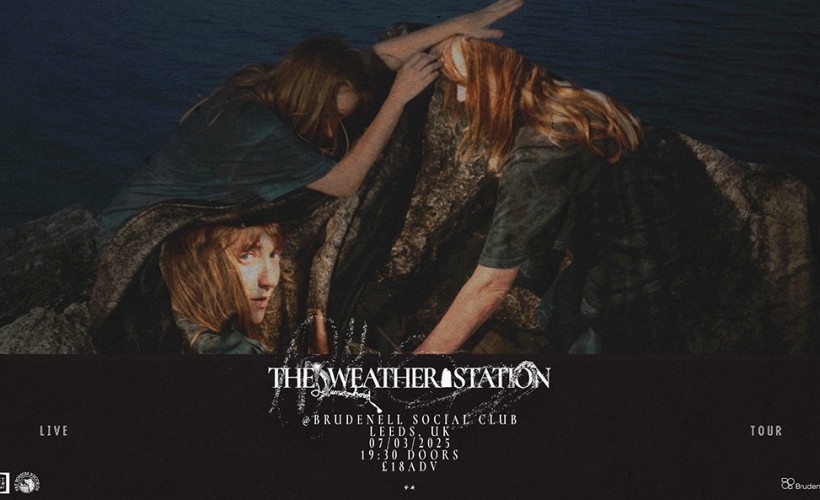Search JACK

The Weather Station Tickets
Buy Tickets for The Weather Station
Information
Performing Artists
It takes only 10 seconds for Tamara Lindeman to pull us to the floor on Humanhood, the seventh and most arresting album she has ever made as The Weather Station. “I’ve gotten used to feeling like I’m crazy—or just lazy,” she sings at the start of “Neon Signs,” her voice at once a soft whisper to a confidant and a full-throated confession to a crowd. “Why can’t I get off this floor? Think straight anymore?” If you don’t know this feeling, consider yourself blessed, because it seems these days like our true modern malaise, that unbound sense of not knowing how or what it is we’re supposed to contribute to this fractious world, or if we even have the energy or will to try. That disoriented sense is the emotional throughline of Humanhood, written during one of the most difficult periods of Lindeman’s life and rendered with a rock band with improvisational chops just as she began to recover by reckoning with a complicated truth: Sometimes, life simply tries to dismantle us, and we must accept that in order to survive. From the outside, 2022 likely appeared a banner year for Lindeman. Her 2021 album Ignorance—a deeply personal but widely resonant reflection on climate change, or how we’ve learned to live alongside our own existential undoing—was one of that year’s most celebrated records. 2022, then, was a time of touring, travel, and activism alongside the release of Ignorance’s more austere companion, the beautiful How Is It That I Should Look at the Stars. But at an ostensible new professional peak, she was also going through a mental health crisis she mostly kept hidden. As Lindeman has done for at least 15 years, she turned to songwriting, combining pain, confusion, and flickers of distant hope with ideas about advertising, capitalism, and how we’re meant to feel very specific ways into pages and pages of lyrics. In the past, Lindeman mostly wrote about her past, turning backwards to gain perspective. But for Humanhood, she worked with the present as she tried to endure it. Humanhood, then, radiates with new urgency—and emerges as a sort of tether, offered up here for any of us else feeling disconnected from the vertiginous reality of right now. In the fall of 2023, Lindeman gathered six musicians at Canterbury Music Company, where she had recorded Ignorance and How Is It That I Should Look at the Stars, alongside co-producer Marcus Paquin. Several of these players—drummer Kieran Adams, keyboardist Ben Boye, percussionist Phillippe Melanson, reed-and-wind specialist Karen Ng, and bassist Ben Whiteley—had worked together but never in this specific arrangement or context. Lindeman, after all, wanted to hear the sudden sparks made by these new encounters, to witness everyone react in real-time to the songs and sketches she supplied.
Address
33 Queen's RoadHeadingley
Leeds
UK
LS61NY
Venue age restrictions:
Age restrictions apply - check event information
Map
View Larger Map
